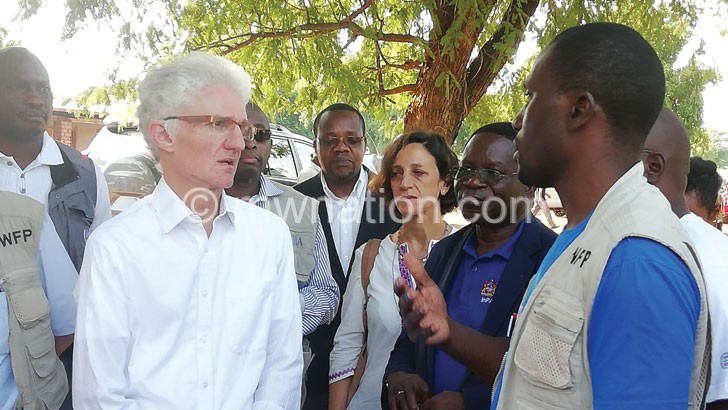Deal with food insecurity—UN
United Nations (UN) humanitarian chief Mark Lowcock has urged government to deal with the root causes of food insecurity in the country if food scarcity is to be avoided.
He made the remarks in Salima where he interacted with people affected by food shortages in the 2017/18 lean season.

Lowcock noted that the country’s growing population, coupled with climate change, have triggered a food shortage in the district, making it difficult for big families to reap enough harvest from a small piece of land.
He said: “Climate change and population are triggering hunger. It is hard for people to make a living through traditional farming, there should be ways to make them productive to avoid relying on rain-fed agriculture, and at the same time control population growth because it is the same land but a lot of people. So if this is avoided, then there will be no one suffering.”
Lowcock, was on a two-day visit to Malawi from Friday March 1 to see the humanitarian situation in the country and response efforts undertaken by aid organisations.
During his visit, Lowcock met President Peter Mutharika and senior government officials at Kamuzu Palace in Lilongwe on Friday.
Mutharika hailed the UN for its continued support to Malawi’s humanitarian sector.
In the 2017/18 growing season, government announced that it had set aside K68.5 billion ($94.1 million) for food relief for over 3.3 million people that the Malawi Vulnerability Assessment Committee (Mvac) projected would be food insecure following a 28.4 percent decrease in maize production.
After projections by Mvac that showed that 3.3 million people would be severely food insecure in the country between January and March, released $10 million (about K7.4 billion) from the UN’s Central Emergency Response Fund (Cerf) to aid the affected communities.





